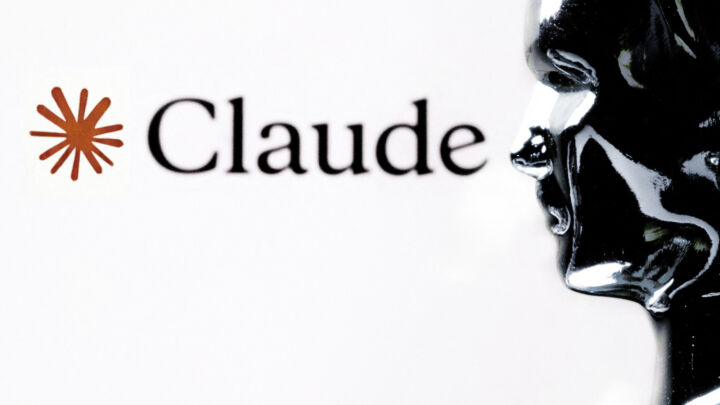Labour’s Islamophobia ban is a gift to criminals and extremists
An official ‘Islamophobia’ definition will accelerate the slide towards a two-tier justice system.

Want unlimited, ad-free access? Become a spiked supporter.
Warnings have come thick and fast recently against Labour’s plan to introduce an official definition of ‘Islamophobia’. First, a leading KC and government adviser said it would hinder police investigations into Muslim offenders. Then, writing in The Times, shadow equalities minister Claire Coutinho argued that the plans would stifle discussions about grooming gangs.
Labour’s plans date back to 2019, when the party, then in opposition, adopted the definition of Islamophobia proposed by the All-Party Parliamentary Group (APPG) on British Muslims. It defined Islamophobia as ‘a type of racism that targets expressions of Muslimness or perceived Muslimness’. Clearly, the vagueness of ‘Muslimness’ and the subjective nature of ‘perception’ would mean that anything offensive to Muslims could potentially be deemed Islamophobic.
Even back in 2019, it should have been obvious that defining Islamophobia would have all kinds of unintended consequences. The term Islamophobia, which means an irrational fear of Islam, was invented to shield the religion of Islam from scrutiny, rather than to protect Muslims against discrimination. And it just so happens that, for a number of reasons, an increasing number of people in the UK do want to excercise their right to criticise Islam.
The grooming-gangs scandal is an example of the horrors that can result when we are afraid to criticise certain groups or a particular religion. A disproportionate number of the perpetrators were Pakistani Muslims. Some will have felt they were given a free pass by Islamic scripture, which can be interpreted to endorse sex slavery, child marriage and the possession of infidel women as bounty. These are all serious crimes under English law. Yet all the evidence available shows that police shied away from investigating these crimes because they were scared of being labelled ‘racist’. Had the grooming-gangs scandal began today, no doubt the word ‘Islamophobic’ would have been bandied around among officers.
Any codification of ‘Islamophobia’ would greatly restrict free speech – despite what government ministers have said to the contrary. Indeed, sometimes the mask slips. In Prime Minister’s Questions in November last year, backbencher Tahir Ali called for a prohibition on the ‘desecration of religious texts’ and ‘Abrahamic prophets’. Ali was careful to sound inclusive, but it was clear that he had one religion in particular in mind. After all, his question was posed in the context of ‘Islamophobia Awareness Month’, and he enthusiastically cited a recent UN resolution condemning the desecration of the Koran. Keir Starmer then agreed with him, saying his government was committed to tackling ‘Islamophobia in all its forms’.
Worryingly, it seems that MPs like Ali already achieved their aim, without the hassle of getting a law through parliament or drawing up a definition of Islamophobia. Take the case of Moussa Kadri, who was spared prison after attacking an anti-Islam activist with a knife. Kadri slashed at Hamit Coskun, threatened to kill him, and repeatedly kicked him on the ground. Yet the judge let him go, seemingly sympathising with him for losing his temper when his religion was insulted. Not only did Kadri walk free – he also received a lesser punishment than Coskun, who was convicted of a public-order offence for burning the Koran and ordered to pay a fine. The two cases all but confirmed that Islamic blasphemy laws are being enforced in Britain.
With any luck, Kadri’s case and the outrage it has provoked will stall the march of censorship. Indeed, opposition to Labour’s Islamophobia plans has been brewing for a while. In July, the Network of Sikh Organisations (NSO) reiterated its intention to take legal action against the government if a definition resembling that of the APPG is adopted. The NSO said such a definition would not only create a ‘hierarchy’ of religions in the UK, but could also censor the teaching of Sikh history. This includes the martyrdom of Guru Tegh Bahadur, killed in the 17th century by Mughal Islamic ruler Aurangzeb for refusing to convert to Islam. The Hindu Forum of Britain has expressed similar concerns.
Adopting the APGG definition would not only impact British secularists and non-Muslims. It would also betray Muslims across the world who remain trapped in hardline Islamic societies. There are more than 10 Islamic countries that impose the death penalty for blasphemy, while a further 20 or so impose violent corporal penalties. Criticism of this theocratic repression should be encouraged in a country like Britain, not censored.
No doubt Labour’s rush for an Islamophobia definition has been partly motivated by the rise of the so-called Gaza Independents at last year’s General Election. To Labour MPs, this might seem like clever politics on the face of it, to win back lost Muslim voters, but the long-term consequences for Labour could be disastrous. Labour could lose the support of almost every other religious community – notably Hindus and Sikhs – and bind itself to a hardline fringe that the wider public could never accept.
An official Islamophobia definition would be a disaster for Britain. Let’s hope Labour realises this before it’s too late.
Kunwar Khuldune Shahid is a writer based in Pakistan.
You’ve hit your monthly free article limit.
Support spiked and get unlimited access.
Support spiked and get unlimited access
spiked is funded by readers like you. Only 0.1% of regular readers currently support us. If just 1% did, we could grow our team and step up the fight for free speech and democracy.
Become a spiked supporter and enjoy unlimited, ad-free access, bonus content and exclusive events – while helping to keep independent journalism alive.
Monthly support makes the biggest difference. Thank you.









Comments
Want to join the conversation?
Only spiked supporters and patrons, who donate regularly to us, can comment on our articles.